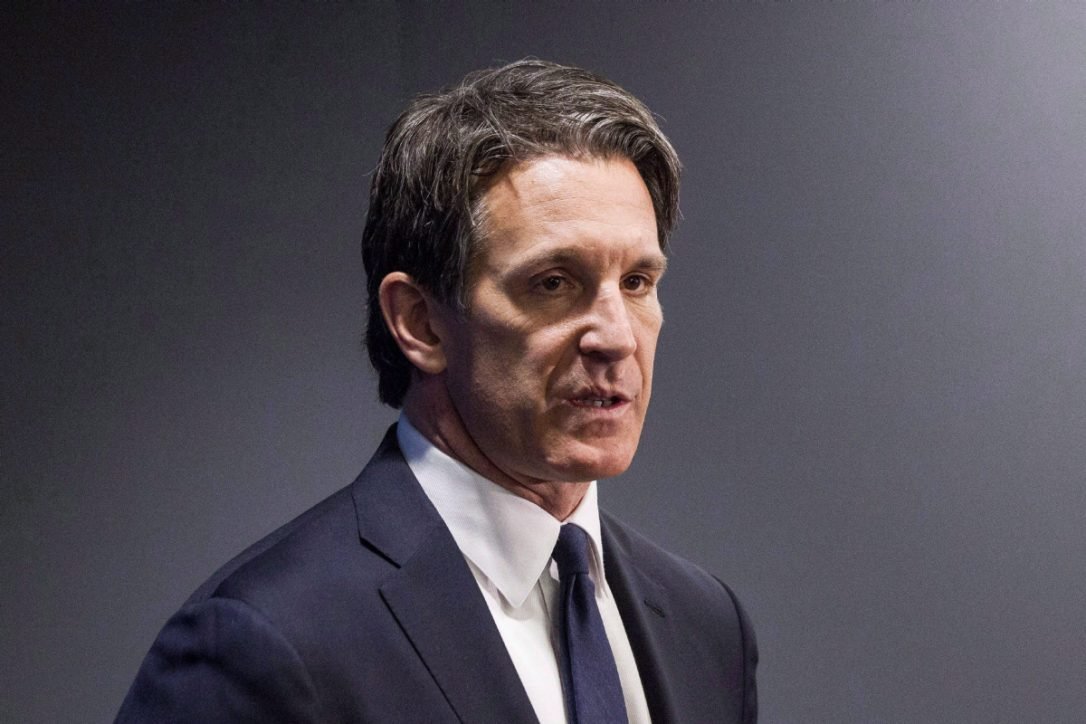After the ground-shaking news broke on Friday afternoon of Kyle Dubas’ departure as GM of the Maple Leafs and I soaked in the tidal waves of fan reaction online, I sent out the following tweet:
![]() I recognize uncertainty is in some senses scary, but I am not fully understanding the sky-is-falling vibes on Leafs Twitter.
I recognize uncertainty is in some senses scary, but I am not fully understanding the sky-is-falling vibes on Leafs Twitter.
Shanahan, the guy who saw the potential in Kyle Dubas when he was a nobody — who hired him, promoted him over a legendary HHOF-bound incumbent, and apparently wanted to extend him for five years as recently as a week ago — is getting portrayed as though he is now setting back the organization decades because the relationship broke down nine years into it.
It is always a little disappointing to see things end as ugly as they did, but is Shanahan maybe capable of making a good hire again? And is it maybe possible that a fresh set of eyes on the roster — one without the on-the-record vows of loyalty to certain players and coaches — could be a positive development seven years into it with this core?
It strikes me as a reaction born out of a low-bar, fear-the-worst kind of mentality created by the deep scarring left over from the JFJ/Fletcher/Burke/Nonis eras. Understandable but not 100% rational.
![]()
I wanted to expand on this a little bit here. There has been a lot of chatter about this decision turning on Kyle Dubas’ admission about the stress on his family in a press conference, or about a disagreement on compensation. It probably isn’t either of those things on their own from Brendan Shanahan’s point of view (we’ll get to Dubas’ possible POV later).
When you pair Dubas’ admission that he couldn’t commit to Toronto long-term without more contemplation with his family — which apparently surprised Shanahan, who thought a commitment was basically in place — with Dubas’ party turning around late in the game and tabling a significantly higher offer than the framework of what was discussed just days prior, it starts to perhaps look like Dubas was negotiating… not necessarily in bad faith, but maybe from a position in which there is a willingness there to walk away from the job entirely. When you get a deal right to the line (by Shanahan’s perception) only for someone to significantly up their asking price at the final hour (so significantly that Shanahan described the convo as “brief”), it could start to sound like the mindset on the other side of the negotiating table falls into the category of, “I’ll see what I can get here with my leverage, and if it’s a no, I’m fine with walking away.” It could be perceived as someone who is less than 100% committed.
Maybe, in this scenario, Dubas was fully committed and completely bluffed/overplayed his hand, but you can see why it might change Shanahan’s calculation of whether or not Dubas was actually the best fit for the position. It’s tempting to say, “Well, if Shanahan thought Dubas was the best candidate — better than any external option — a week earlier, and now he is gone, it’s clearly a major loss and a certain downgrade for the organization.” But Shanahan likely feels he built the framework of the offer assuming Dubas was all in on a multi-year commitment. Whether right or wrong (I can’t say without being present for the conversations between the two sides), Shanahan seemed to arrive at the belief this week that Dubas wasn’t fully there anymore with the level of commitment and passion he once had for the role. If true, that’s a different type of candidate than the one he thought he was negotiating with the week prior. How would he approach a potential decision like axing a close friend in Sheldon Keefe or a player he swore his allegiance to in order to move forward? Did he still have the wherewithal to make the kinds of tough calls that need to be made at this stage of the journey with this team?
While we don’t have the exact figures that were tossed back and forth in this negotiation, to opine for a second, Shanahan and the Leafs are generally right to avoid a culture of, “It’s hard/stressful being a Leaf, so pay me more for it, or I might not continue on here.” It is an honour that comes with unique challenges but special rewards as well. You’ve got to be up for it 100% — and not expect to be paid a premium to tolerate it — or it’s not for you.
From Shanahan’s perspective, he brought Dubas in as a relative unknown from the Soo, believed in him, kicked a legendary HHOFer to the curb to promote him to GM, fired the highest-paid/biggest name coach in the game to accommodate Dubas’ head coach preference, and stood by him through many successive early playoff exits. If Shanahan’s account is to be believed, he was apparently ready to commit to him before the Leafs had even won a playoff round yet this past March. On a relationship level, he had to feel like Dubas wasn’t fully reciprocating as “all in” on Shanahan as much as Shanahan has been all in on Dubas over the years.
Now, it’s likely that Dubas’ perception of some of these events is notably different than Shanahan’s. Shanahan has almost certainly been selective in what he’s revealed to us here as the PR battles play out. Dubas may have felt that it was Shanahan who wasn’t really all-in on him — that he was left to twist in the wind without a contract extension beyond the end of the season, inviting a lot of scrutiny and stress on himself and his family unnecessarily in this market while Shanahan verbally indicated nothing but faith in his work and vision. Dubas may have felt it was a case of standard negotiation tactics with his counteroffer and thought there was more runaway before a final decision would be made. Dubas may have felt the framework for a deal was nowhere near as hammered down as Shanahan has indicated. He may have felt the autonomy to do his job properly was limited.
The details of the offers, the veracity of the timing and the communication that Shanahan depicted in his press conference mean everything here. It’s important to recognize that we don’t — but hopefully will at some point — have Dubas’ side of the story. Given how poorly it appears that Dubas and his agent Chris Armstrong played this entire situation based on Shanahan’s account (i.e. Dubas wanted to stay — we have it in an email — but he waffled and submitted a wild demand late in the process and lost the job), it would not be surprising to see, if not a public statement, leaks emerging from the Armstrong and Dubas camp that dispute key details of this version of events.
All of that said, it’s important to recognize that a switch didn’t flip with Dubas arriving in 2019 en route to the Leafs becoming a respectable franchise. Dubas took the baton from Lou Lamoriello and made appreciable improvements — particularly to the defense core — despite a couple of onerous contracts on the books (Patrick Marleau & Nikita Zaitsev), but it was a 105-point team with a prime-aged-or-younger Auston Matthews, William Nylander, Mitch Marner, Morgan Rielly, Nazem Kadri, and Zach Hyman on the roster (John Tavares soon followed and likely would have come regardless of the very recent GM change — given the hometown connection, the talent in place, and relationship with Mike Babcock — but we’ll leave him off here). This is not far off from being thrown the keys to a Ferrari.
It’s worth noting that all of the players on that list who are still a part of the Leafs organization have experienced life in the organization without Kyle Dubas running the team. None except for Morgan Rielly have experienced life in the NHL without Brendan Shanahan at the top of the team’s hockey ops hierarchy. Before we cite all of the quotes from last week about the players’ appreciation for Dubas, it’s a given that many of these core players would verbally praise the GM (Dubas) who made them richer than their wildest dreams and has shown deep faith in their talent and abilities. There are hopefully reasonable relationships in place with Shanahan, too, though.
Shanahan now falls squarely in the cross-hairs as he is on his third GM change and has one playoff round win to show for it. This next hire is clearly make or break. He has a lot to sort out in a short timeframe, with a tight window to hire a new GM coinciding with a franchise-altering contract negotiation with a generational superstar in Auston Matthews, another significant contract negotiation with a 40-goal scorer in William Nylander, and a lot of roster turnover in terms of expiring contracts. He will also need to smooth it over with a lot of the brain trust that is critical to keeping the day-to-day hockey operations churning this summer, the off-ice talent that is loyal to Dubas and might fear the unknown in terms of the new boss that’s soon to arrive.
So concludes a fascinating day preceding many more fascinating days ahead.































